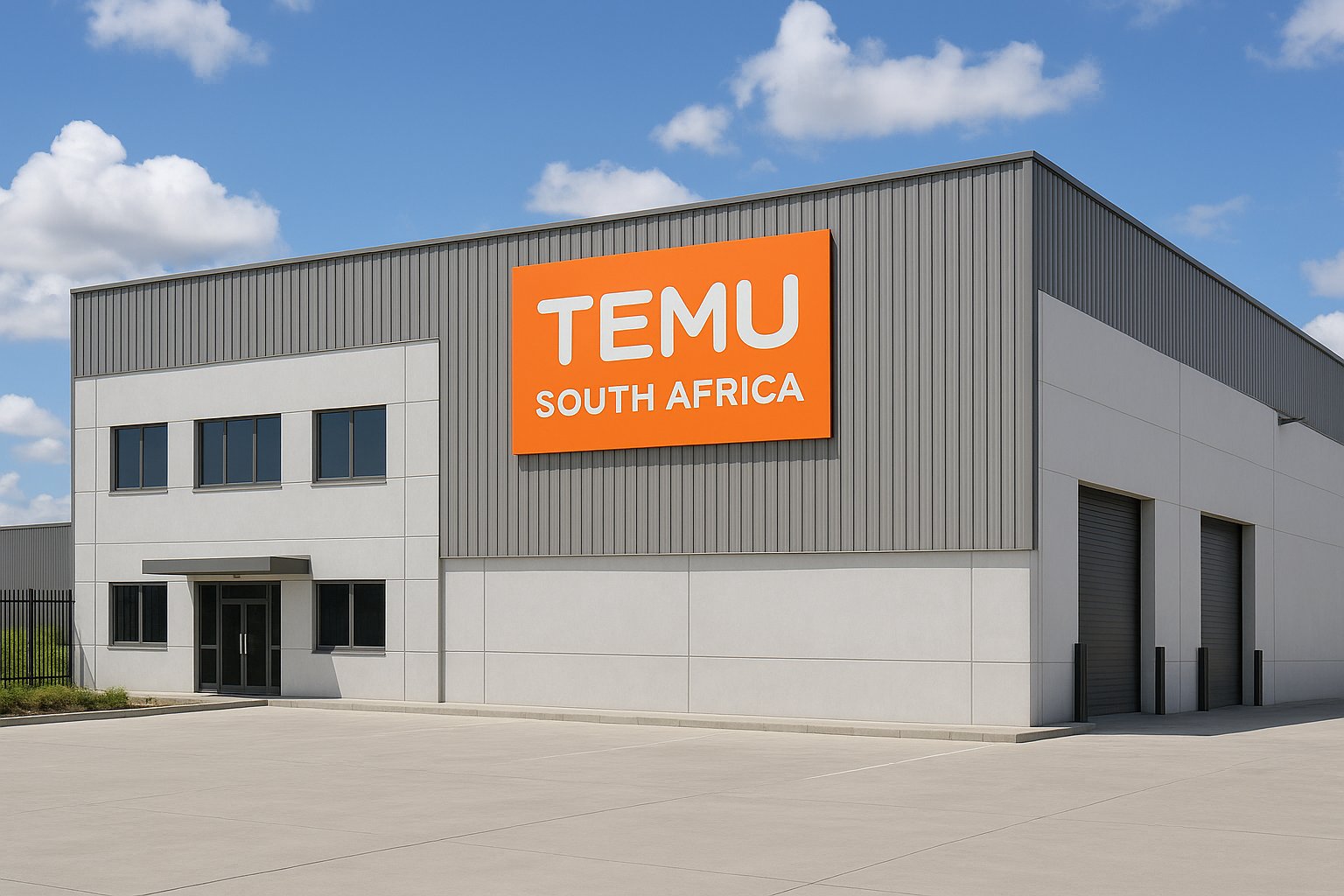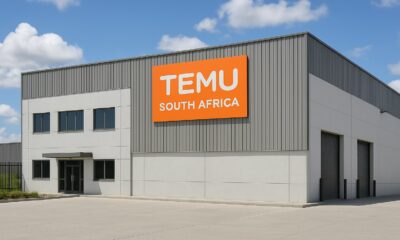Business
Temu’s ‘Local Warehouse’ in South Africa: Here’s What’s Really Going On

When Temu announced the launch of “local warehouse” delivery in South Africa, many shoppers assumed the e-commerce giant had opened a distribution centre on local soil. But the truth is a little more nuanced.
Temu has confirmed that it does not operate or own warehouses in South Africa. Instead, it partners with third-party logistics providers who stock certain products locally, making them available for faster shipping under the “local” or “local warehouse” label.
What ‘Local Warehouse’ Actually Means
According to Temu:
“Under the local fulfilment model, sellers store inventory in local warehouses, manage logistics, and provide after-sales support, allowing for faster delivery and more responsive service.”
In other words, if a product is labelled “local warehouse,” it’s stocked domestically by a partner logistics company, not by Temu itself. This model cuts down delivery time, avoids import duties for the customer, and enables quicker after-sales support.
But there’s a catch.
Each seller still applies a R75 delivery fee on orders below R650. So if you buy from multiple sellers, expect a R75 charge per seller unless your purchase from that specific seller exceeds R650.
Why the Move Matters
Temu’s local fulfilment model aims to shorten delivery windows for South African customers, similar to how it operates in the US, UK, Germany, Japan, and other countries.
Delivery estimates shown on Temu’s platform now reflect the fastest time each seller has achieved, giving users a better sense of what to expect. Clicking the estimate reveals historical performance for that item, an extra transparency layer Temu hopes will build trust.
This rollout marks Temu’s first major local service upgrade since its January 2024 debut in South Africa. The company gained popularity fast, thanks to aggressive discounts, social media gamification (like spinning wheels and flash deals), and a massive marketing spend, reportedly up 1,000% in 2023 alone.
Backlash from Local Retailers
But Temu’s explosive rise hasn’t been without backlash.
Within months of entering the South African market, both Temu and fellow Chinese e-commerce giant Shein came under fire from local businesses and retailers, particularly in the clothing, tech, and logistics sectors.
The core grievance? Tax loopholes.
Temu’s sellers often import items under a 2007 South African Revenue Service (SARS) concession that applies a flat 20% duty (without VAT) on low-value items under R500. Local clothing manufacturers pointed out this lets foreign sellers undercut them, avoiding the 45% duty typically levied on imported clothing.
In the tech sector, concerns were raised over unregulated electronic goods being sold without proper radio or electrical certification.
SARS Responds, Then Pauses
In 2024, SARS said it would clamp down on abuse of the concession and planned to apply full duties on low-value imports starting 1 July. This could have closed the loophole but also slowed down customs clearance dramatically.
Facing pressure from stakeholders, SARS put the full-duty plan on hold, instead:
-
Introducing 15% VAT on top of the 20% duty (from 1 September 2024), and
-
Reconfiguring the flat-rate duty from February 2025 to align with international customs standards.
Chair of the South African Express Parcel Association, Garry Marshall, defended the logistics process, stating:
“Nothing the Chinese retailers or their logistics partners are doing is illegal. The real problem is how the current system affects local manufacturers.”
He added that the flat-rate concession wasn’t designed to help consumers, it was created to speed up customs clearance in the face of booming e-commerce imports.
Faster Delivery, But Still Complicated
Temu’s local warehouse rollout may improve delivery times for South African shoppers, but it’s not quite the “local operation” it might appear to be. It’s a logistics partnership, not an infrastructure investment.
And while Temu is pushing the envelope with cheaper prices and faster fulfilment, regulatory and tax concerns continue to cloud its long-term role in South Africa’s retail ecosystem.
For now, Temu shoppers get faster deliveries, and local retailers remain wary, watching closely as the e-commerce battlefield continues to shift.
Temu Opens First Local Warehouse in South Africa, Promising Faster Delivery
{Source: My Broad Band}
Follow Joburg ETC on Facebook, Twitter , TikTok and Instagram
For more News in Johannesburg, visit joburgetc.com



























